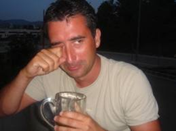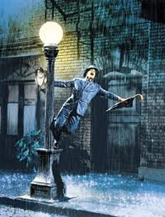The Power of Music
When I was a young girl, I responded to an article in our hometown paper asking for volunteers to work with a 10-year old boy who had a neurological disorder that caused his muscles to continually spasm. That’s all I remember and I may have the specific details all wrong, memories being as they are. What I DO recall is that my job was to stand by his bed opposite another volunteer and move his arms and legs in a rhythmic motion so as to create muscle memory. One of the rules was “no music.” When I asked why, his mother explained that all music, even rock music, relaxes the listener and when her son relaxed his spasms increased.
It turns out that may not be true. New research indicates that the beat of the music determines whether or not it is relaxing. It is generally accepted that a relaxed heart rate is in the 40 to 60 beat per minute rate. Most music, including much classical, is played at a rate of 86 beats per minute or more.
According to Dr Steven Halpern, musician and psychologist, “Music with a fast beat entrains your heartbeat and breathing patterns to match that beat, causing them both to speed up. This in turn can cause you to be less focused, more easily distracted, more irritable and more stressed. You lose energy and enthusiasm sooner. Your capability for creative problem-solving, especially while under pressure, decreases.”
So how can we use music when practicing Passionate Self Care? The answer, as usual lies in the answer to a question: “What is your focus?” For example, do you want to focus on relaxing? If so, it’s important to listen to music specifically designed for that purpose. Are you looking to improve your mood, to energize? Then you want to find music that makes you tap your feet and want to dance. Do you want to wallow in misery? Then some “cry in your beer” country songs are your answer.

Whatever your goal, music can be a powerful ally. It is an ancient tool of healing that was recognized in the writings of the Greek philosophers Pythagoras, Aristotle, and Plato. Benefits include decreased heart and respiratory rate, blood pressure, anxiety, agitation and depression, along with general stress reduction, improved coping skills and better psychosocial adjustment. Music has also shown to be an effective sedative component in pre-operative and operative procedures.
It will come as no surprise that I’m a big fan of happy music. Two-and-a-half year old Charlotte is visiting us this week with her parents. Just yesterday, she was agitated so I went on YouTube.com and found a clip of Gene Kelly performing the song Singing in the Rain.

http://www.youtube.com/watch?feature=player_detailpage&v=YdxCx7GilbQ
It quieted little Charlotte right down (and put a big smile on both of our faces!)
Need inspiration? I often listen to Barbra Streisand singing Don’t Rain on my Parade. The Theme from Rocky will also pump you up for success.
Whatever music you enjoy, I ask only this: pay attention to how it makes you feel. If you feel good while listening to it, then it’s good for you. If it agitates, then it’s not.
Use this powerful tool to enhance your ability to passionately take care of yourself.
I’m singin’ in the rain, just singin’ in the rain
What a glorious feeling, I’m happy again!
